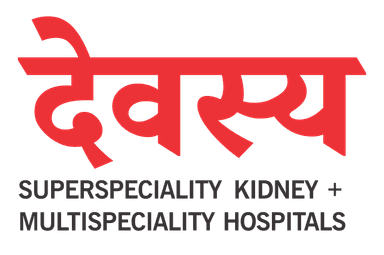Alports Syndrome Treatments & Surgery
How Devasya Hospital Helps to Cure Alports Syndrome?
When it comes to choosing the best hospital for Alport syndrome treatment, it's essential to consider factors like the hospital's expertise in managing rare genetic kidney diseases, the experience of their medical staff, available resources, and the success rate of kidney transplants if that is needed. Devasya Hospital is the best hospital for alports syndrome. It is backed up with a team of the best doctors for dialysis or kidney transplantation.
They have the best facilities with a strong nephrology department, experienced transplant surgeons, and a successful track record in managing kidney transplantations. They also provide specialized services like post-transplant care, support services, and proximity to your location. The nephrologists and transplant surgeons help you take the best decision based on the patient's overall health, the severity of kidney disease, and individual preferences.
FAQs
Alport syndrome is a rare genetic disorder that predominantly affects the kidneys but can also involve the inner ear and eyes. It is characterized by mutations in specific genes responsible for the production of collagen IV proteins in the basement membrane of the glomerulus, which is a key component of the kidney's filtration system. This genetic mutation leads to progressive kidney damage, often resulting in kidney failure. Common clinical features of Alport syndrome include hematuria (the presence of blood in the urine), proteinuria (excessive protein in the urine), progressive hearing loss that typically begins in childhood, and various eye abnormalities.
Alport syndrome encompasses different types, each with a distinct pattern of inheritance. The most common types are X-Linked Alport Syndrome (XLAS), which primarily affects males and is inherited in an X-linked recessive manner, Autosomal Recessive Alport Syndrome (ARAS), which affects both males and females equally and arises when both parents carry mutations in related genes, and Autosomal Dominant Alport Syndrome (ADAS), where a single affected parent can transmit the condition to their children, impacting both males and females. These variations in inheritance patterns play a significant role in determining who may be affected within a family.
The clinical presentation of Alport syndrome often includes a combination of signs and symptoms, such as hematuria, where individuals may experience blood in their urine, and proteinuria, which refers to the presence of excess protein in the urine. Additionally, individuals with Alport syndrome typically encounter progressive hearing loss, often commencing in childhood. Eye abnormalities, like lens dislocation and anterior lenticonus, can also be observed. Kidney complications are a hallmark feature and can advance to kidney failure. Some individuals may experience high blood pressure and edema as well.
The complications associated with Alport syndrome primarily revolve around kidney-related issues. These can include the development of chronic kidney disease, which may progress to end-stage renal disease, resulting in kidney failure. Hearing loss is another common complication, and individuals with Alport syndrome may experience varying degrees of auditory impairment. Ocular abnormalities, including cataracts and anterior lenticonus, can also occur. High blood pressure, which often accompanies kidney problems, is an additional complication that requires careful management.
Alport syndrome is a genetic disorder, and as such, there is no known way to prevent its occurrence if there is a family history of the condition. However, genetic counseling can be beneficial for individuals and families with a history of Alport syndrome, helping them understand the risks and inheritance patterns associated with the condition. Early diagnosis and appropriate medical management are crucial for slowing the progression of Alport syndrome and its associated complications. Regular medical monitoring and interventions aimed at preserving kidney function and addressing hearing and vision problems can improve the quality of life for individuals with Alport syndrome.



